OKC parents struggle with rising food and diaper costs, all as SNAP benefits set for drop
Mollie Reid is a 35-year-old mother of two young children, and she is one of many across the nation struggling with food prices, sacrificing healthiness and convenience in attempts to stretch her family's food budget.
Reid only shops at Homeland, the most convenient store by location, when she needs a few items. She travels farther to buy in bulk at Sam’s Club and also regularly shops at Aldi’s in search of discounted goods.
“Dealing with inflation has been kind of tough,” said Reid, a nonprofit program coordinator. “We are not eating quite as healthy as we would like to. It has been surprising, especially with our wages not going up.”
Parents like Reid trying to feed their families are increasingly feeling the effects of inflation on their wallets. According to the U.S. Department of Agriculture, food-at-home prices increased by 11.4% in 2022 alone.
Addressing inflation in Oklahoma:Amid high inflation, Oklahoma Gov. Stitt's flat budget proposal could pressure agencies
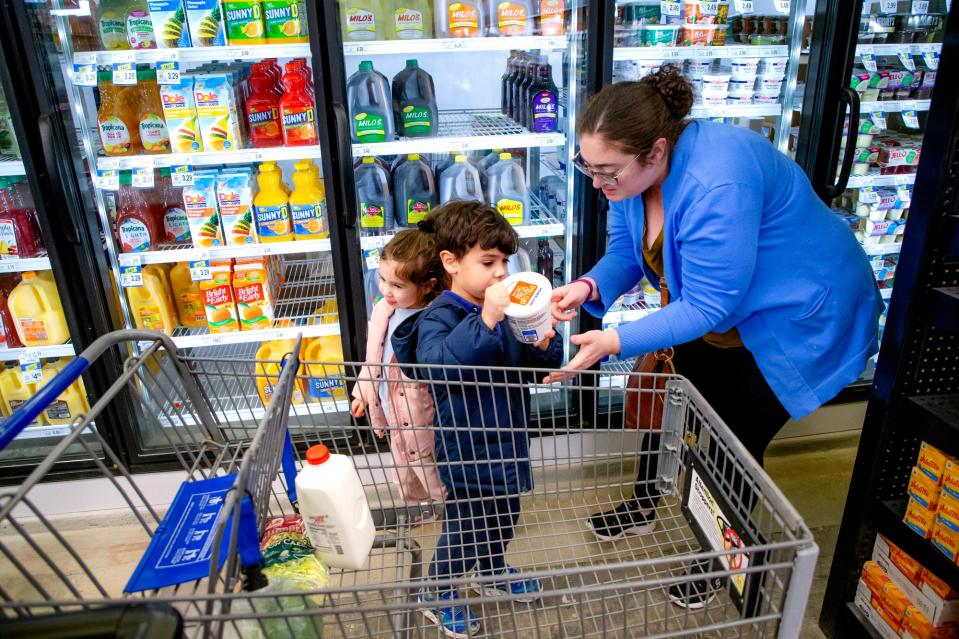
Because of this, many parents are adjusting their spending habits to make ends meet for their families. Some are finding other ways to reduce their food spending, such as growing their own fruits and vegetables, making use of coupons and loyalty programs, and finding alternative sources for expensive staple items.
“I started raising my own animals and growing my own food,” said Mark Grauver, a father of four. “Mostly, we just cook at home. My wife cooks our own bread. We realized we could make five loaves of good quality bread for the same price of one store-bought loaf.”
Sarah Tunnell, 36, a mother of one, said grocery shopping with her daughter is a weekly activity they enjoy together, but it can be challenging.
“Inflation has definitely changed what we can make work in our budget,” Tunnell said. “We don’t eat eggs as much. Instead, we have been eating a lot more beans.”
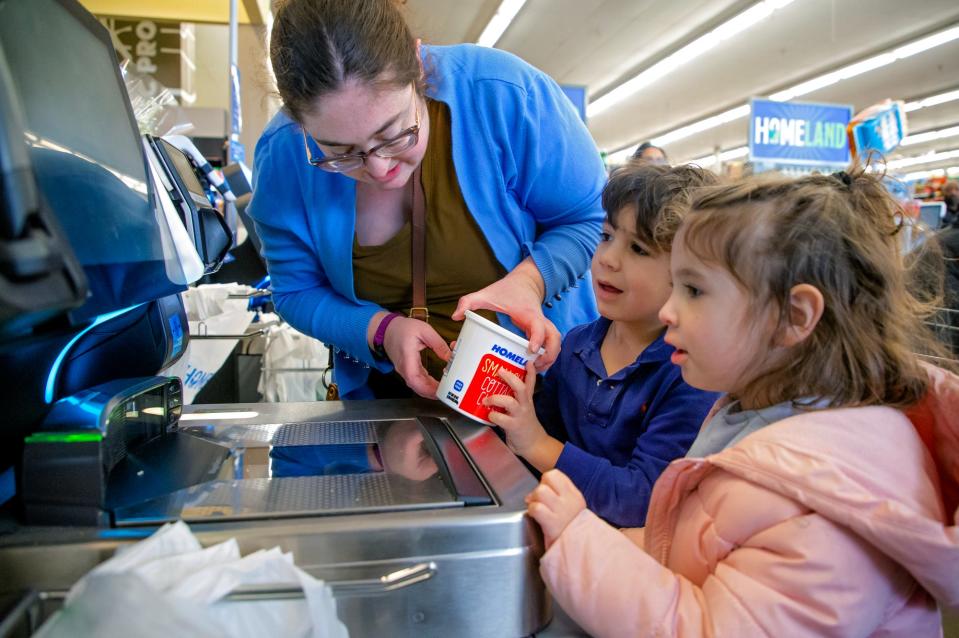
Budgeting as a new parent
Food isn't the only item affecting a parent's budget.
With the price of diapers up 22% since last year, according to NielsonIQ, a data analytics firm that tracks consumer spending, the cost of raising a child is increasing.
“I have learned how to be more conservative (when shopping),” said Talei Onetaka, a mother of four. "It’s crazy, diapers went from $4.98 to $8 or $9.”
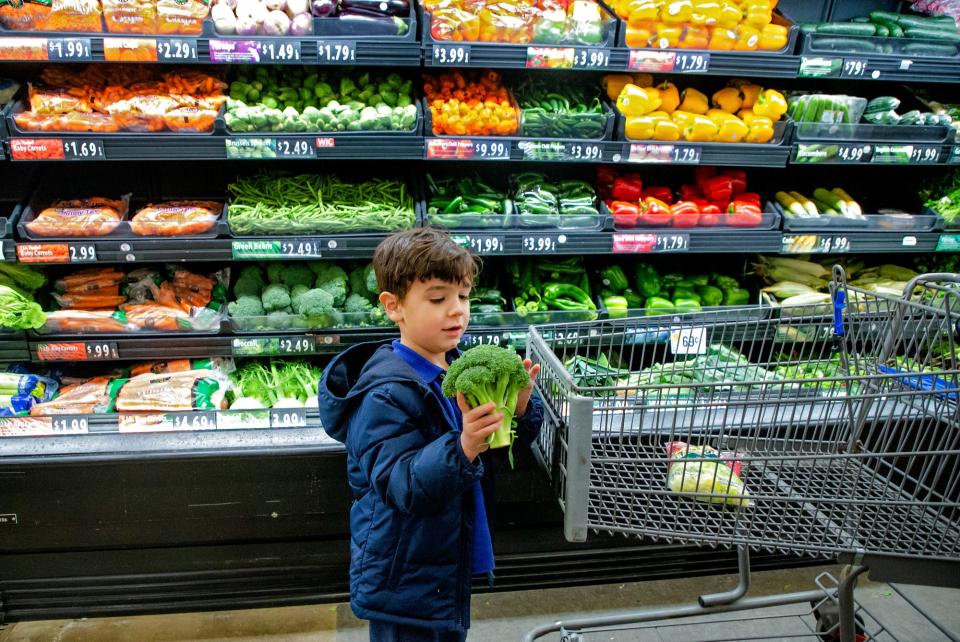
Onetaka receives assistance from the Oklahoma Women, Infants & Children Program, but it does not provide vouchers or funding for diapers. She instead receives help from Infant Crisis Services, which provides her with formula, food, diapers, blankets, clothing and other basic necessities.
What is inflation? Understanding why prices rise, what causes it and who it hurts most.
The program equips new parents with basic supplies up to four times a year for children from birth to age 3. The nonprofit saw their second-busiest month in agency history in January 2023 and expects an even bigger increase in the months to come.
"Last year we had a huge increase in clients," said Allison Parker, director of development and communications. "There was a formula shortage nationwide, and we had a huge uptick in clients, almost 40% more."
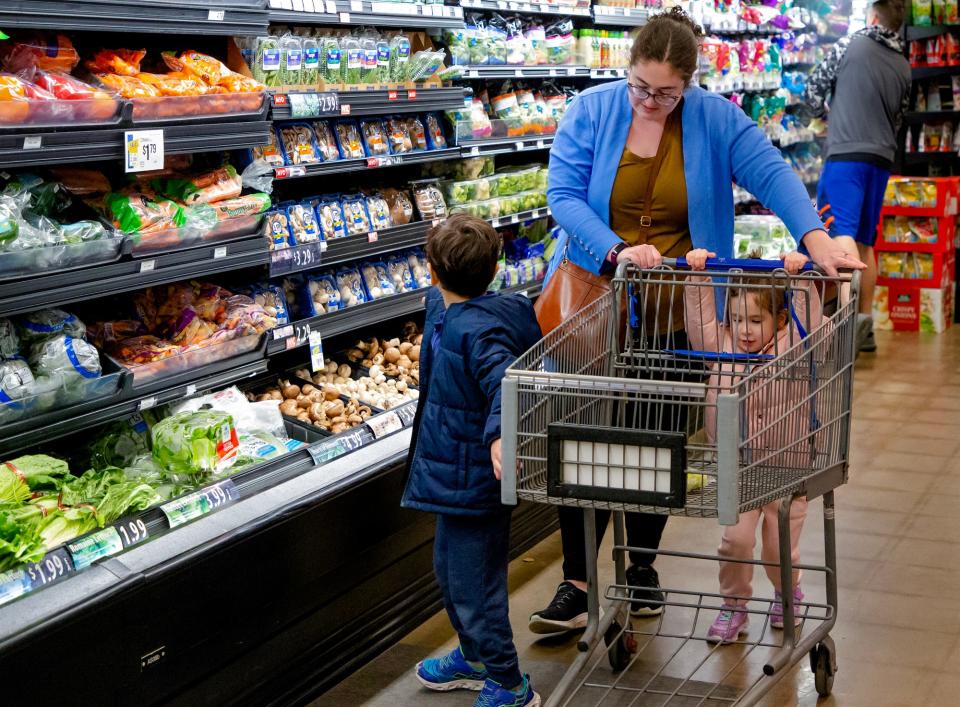
COVID-19 emergency allotments for SNAP to end
Along with skyrocketing rates of inflation, the COVID-19 emergency allotments for Oklahoma’s Supplemental Nutrition Assistance Program will terminate after its last issuance in February.
In April 2020, multiple sources of federal funding temporarily boosted the amount of SNAP benefits families received. This month will be the last month of that extra benefit. According to Hunger Free Oklahoma, the emergency allotments funneled an additional $40 million into the state, and on dinner plates, each month.
According to the Center on Budget and Policy Priorities, each household’s benefit amount will be at least $95 less per month. The Department of Human Services shows more than 855,000 Oklahomans received SNAP benefits in 2022. As a result, nearly 1 in 5 Oklahomans will be feeling this pay cut when the March stipend hits.
More:Higher inflation means more work. More Americans take on multiple jobs to make ends meet
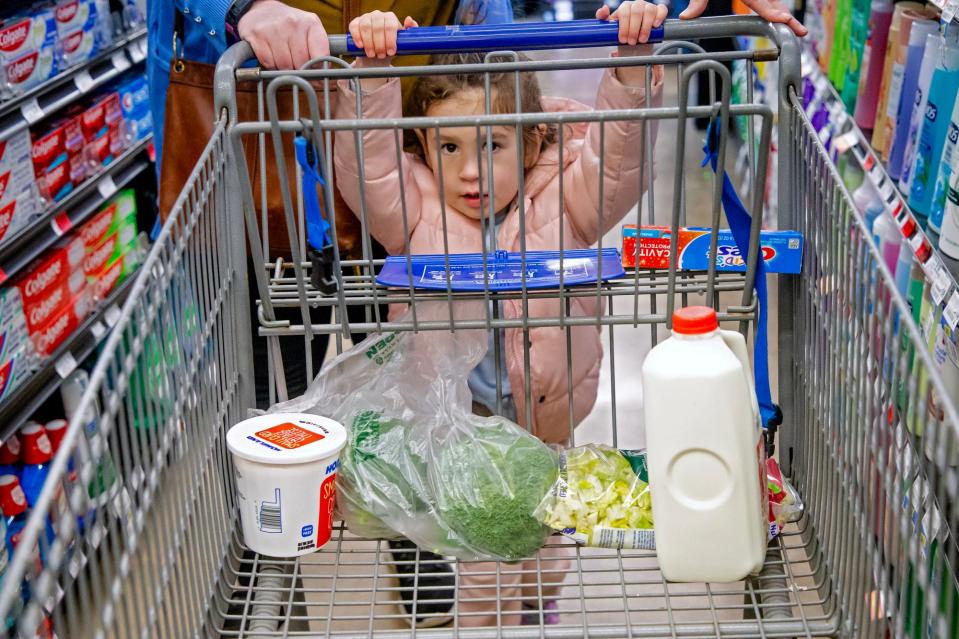
For those who receive SNAP benefits and Social Security, their benefits will further decrease due to the Social Security Cost-of-Living Adjustment, which increased the monthly compensation by 8.7% beginning in January.
“We really don’t know what the full impact of the pandemic had on food insecurity because we were flooded with a lot of resources," said Chris Bernard, CEO of Hunger Free Oklahoma. "And we needed that. We needed to support people. With the emergency allotments going away and inflation continuing to go up, I think in the next three to four months, we’ll really start to see a better picture of what that impact looks like.”
Non-income based resources for Oklahoma City parents
There are many resources in the Oklahoma City metro area that can help families put an extra meal or two on the table.
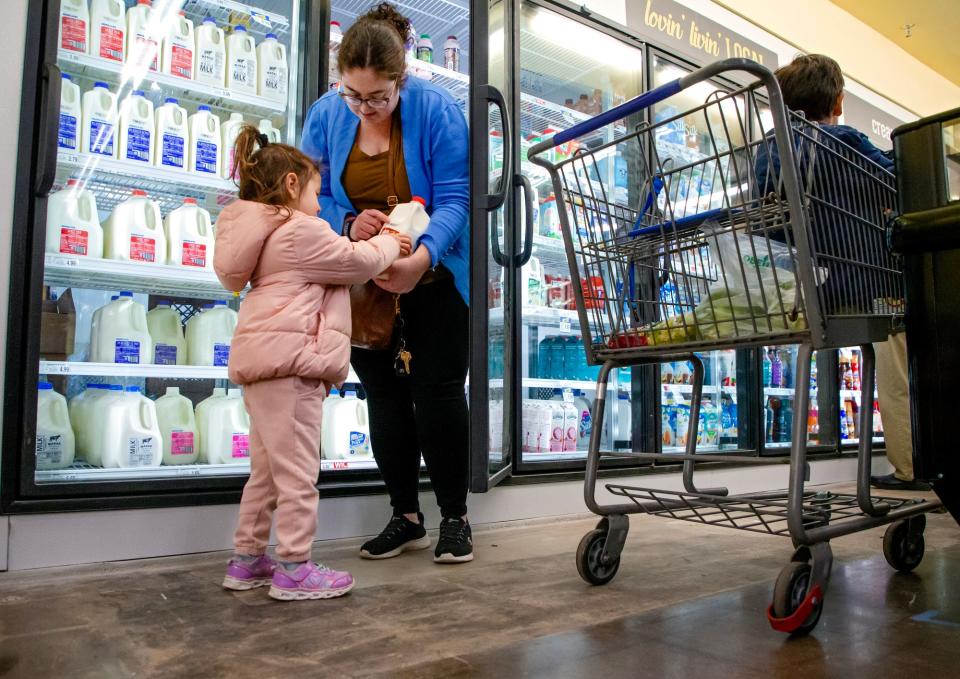
Oklahoma Blessing Boxes are located statewide and function similarly to pop-up libraries, but with nonperishable food items and toiletries. People can take what they need or leave items in the boxes at anytime and without completing any paperwork.
"There are a lot of families who would not meet the income guidelines to get services at other places," said Amy Neathery, who manages a Blessing Box in El Reno. "Inflation still makes their paycheck not go far enough. We are seeing a big need from families who can't get help through the traditional way, and who don't traditionally need help."
The Regional Food Bank of Oklahoma is another nonprofit organization fighting the battle against hunger by distributing food to nearly 1,300 community-based programs across 53 counties in central and western Oklahoma.
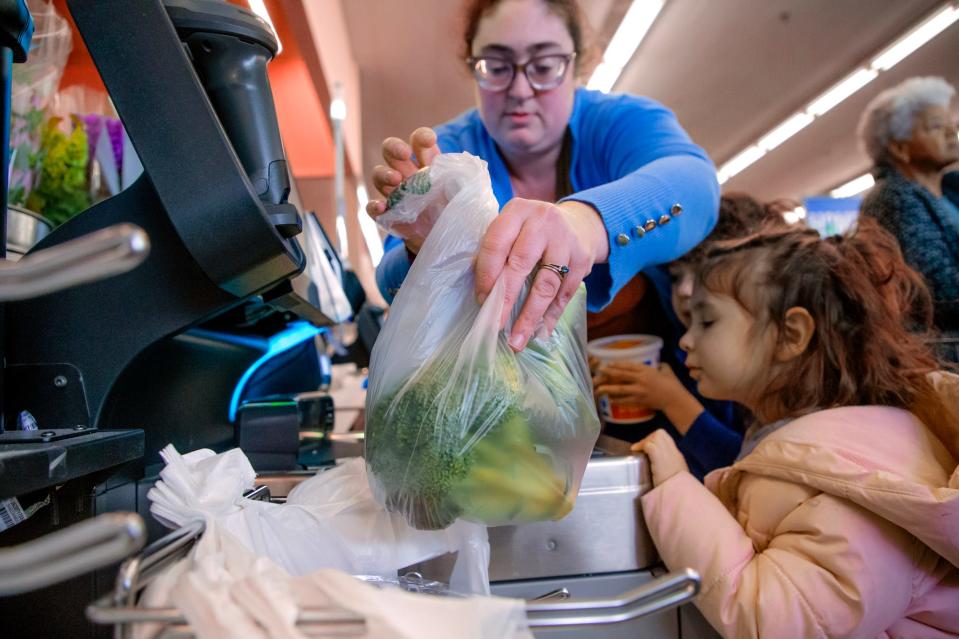
"Because of our extensive partner network, most people can be pretty close to a place where they can walk in and get some extra groceries to help," said Stacy Dykstra, CEO of the Regional Food Bank.
Money-saving tips from Eating on a Dime
Sisters Carrie Barnard and Christina Auchter run the popular Eating on a Dime website. They provide these recommendations and suggestions on how to make the food budget stretch in responsible ways.
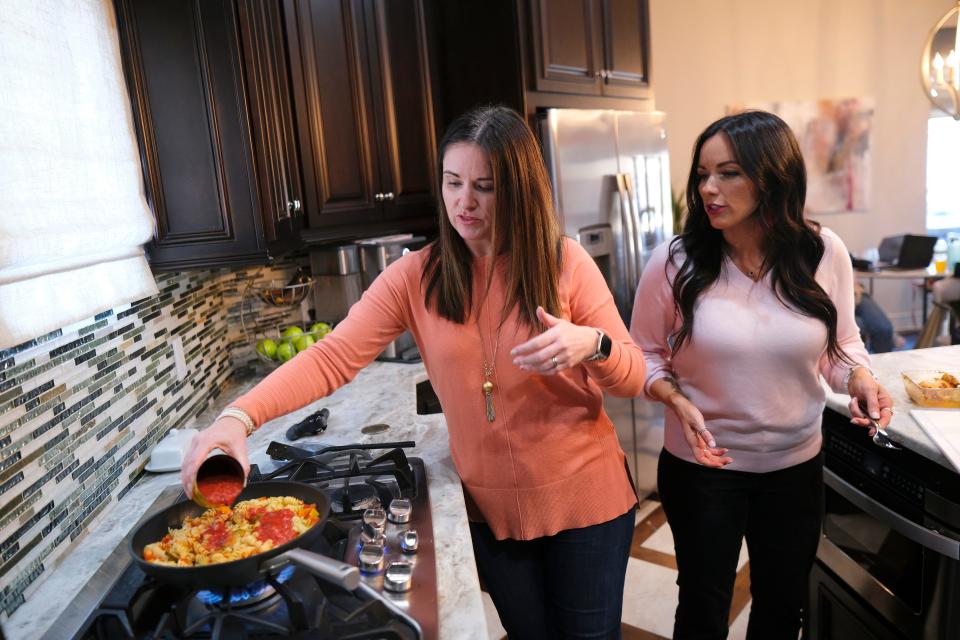
Need: "Buy just what you need,” Auchter said. ”We've learned the average American overspends 30-40% at the grocery store by impulsive shopping. We teach how to stop overbuying, which leads to food waste, and it can really reduce that food budget overall."
Leftovers: "Use up your leftovers," Barnard said. "If you have leftover taco meat, you can turn that into taco soup, taco salad, a burrito, a quesadilla and no one knows that you're eating leftovers."
Freeze: "Freeze as much as possible," Auchter said. "Instead of throwing out leftovers, you can freeze it and it use it later."
Seasons: "Buy fruits and vegetables when they are in season," Barnard said.
Swaps: "Think about protein swaps," Auchter said. "Try swapping expensive beef for ground turkey."
This article originally appeared on Oklahoman: How Oklahoma parents are budgeting amid historic inflation

